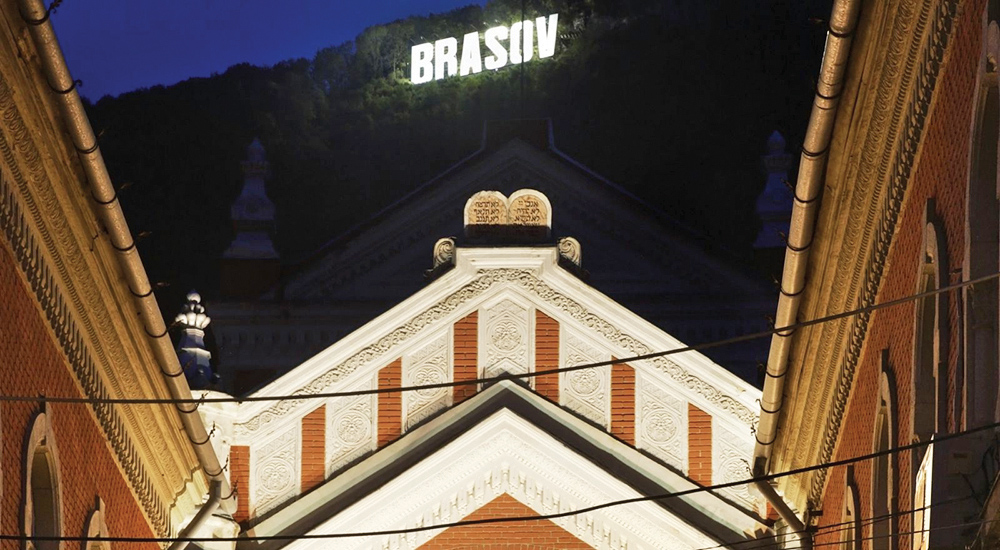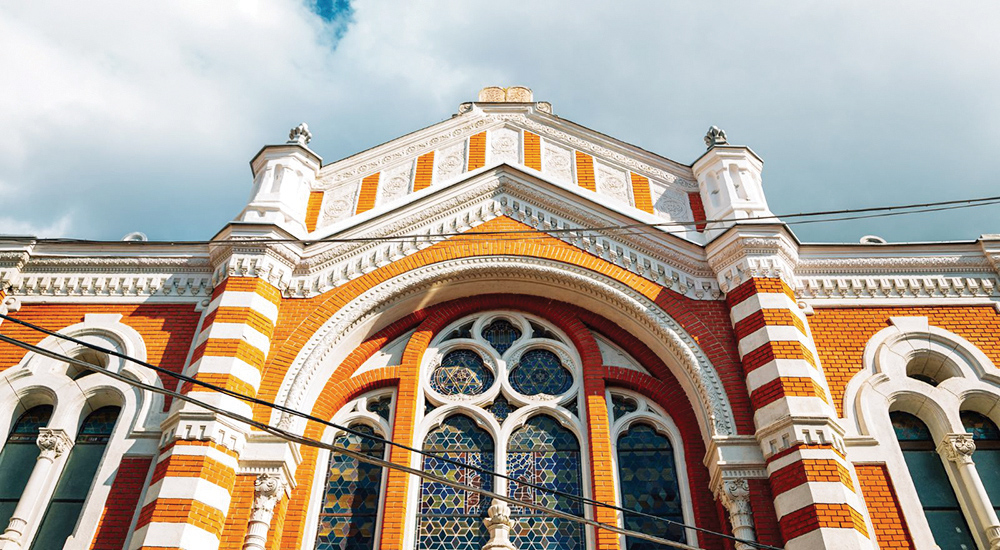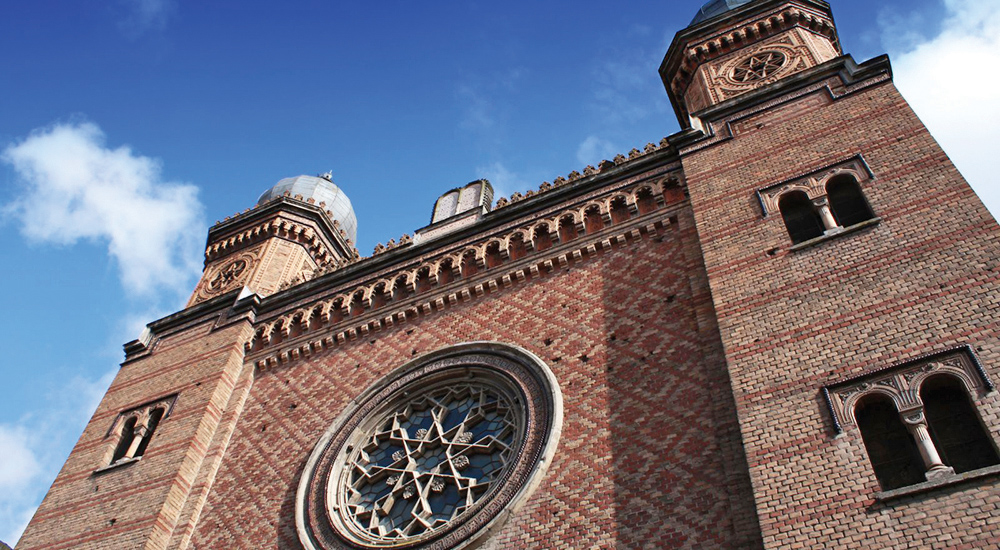
Romania boasts a rich and ancient Jewish history, with evidence of Jewish life dating back to the early second century, and possibly even the first century. From the first Yiddish theaters to some of Europe’s oldest synagogues, the Jewish attractions in Romania are both diverse and significant.
During the interwar period, Romania was home to a thriving Jewish community of around 800,000 people, making it the third most important Jewish community in Europe after Poland and the former Soviet Union.
However, tragic events like the Holocaust drastically reduced this community, leaving just 12,000 Jews in Romania today. Many survivors chose to emigrate to Israel, the United States, and other parts of Europe.
Despite the challenges, some of the synagogues in Romania have managed to maintain active communities, and many have been lovingly restored. These synagogues serve as essential centers for preserving Romanian Jewish traditions, including the preparation of traditional Romanian Jewish food.
Romania has also produced several notable Jewish artists, such as opera star Alma Gluck and writer Elie Wiesel. In recognition of its Jewish cultural roots, the Romanian Parliament declared May 30 as National Yiddish Language and Yiddish Theatre Day in 2017.
For those interested in delving into Romanian Jewish history, several places offer valuable insights. The Elie Wiesel Memorial House in Sighet and The State Jewish Theater in Bucharest are among the notable sites to visit.

Jewish Attractions in Bucharest
Bucharest, the capital of Romania, is home to one of the country’s oldest Jewish communities, established by Sephardic Jews in the 16th century. Visitors to Bucharest can explore the Dr. Moses Rosen Museum of the History of the Jewish Community in Romania—Holocaust Museum, which houses a vast collection of books and memorabilia from Jewish theaters. Additionally, the city boasts the Choral Temple and the Bucharest Jewish Theater, one of the few professional Yiddish-language theaters.
A Little-Known Tip
Bucharest is home to a large Village Museum. This special outdoor display is a day’s worth of houses from all over Romania and all the different eras of Romanian history. While this location is interesting on its own, what makes it even better is that it includes a Jewish home. You can walk in and see how Jews in the past would have lived if they were in a more rural part of Romania. There is another Jewish home in the Village Museum in Sighet. If you’re into architecture, design, and interested in being outside, these village museums are great ways to step back into history.
Jewish History in Arad and Barlad
Beyond Bucharest, various cities in Romania hold Jewish historical and cultural significance. In Arad, once a hub of Reform Judaism, visitors can find a Jewish retirement home, kosher restaurant and youth club, along with several Jewish cemeteries. In Barlad, the Barlad Synagogue and Grain Dealers Synagogue provides a glimpse into the city’s Jewish past, with over 150 graves in the Jewish Cemetery.
Attractions in Brasov and Lasi
Brasov, a renowned stop on Romanian road trips, has housed a Jewish community since 1807, and the community has around 230 Jews today.
Lasi was renowned in the past as an Eastern European center of Jewish learning, though it also experienced significant tragedy during World War II, when much of the Jewish population was killed in a horrific pogrom.

Synagogues in Sighișoara And Targu Mures
Sighișoara, with its medieval citadel and 1903 synagogue, offers a unique opportunity to explore Jewish, German and Saxon heritage in Transylvania. Nearby Targu Mures is home to the Status Quo Ante Temple, considered one of Romania’s most beautiful synagogues.
Jewish Attractions in Sibiu and Cluj
In Sibiu, an artsy and picturesque city, Jewish presence has been recorded since the 12th century. While the Jewish community has dwindled, the Great Synagogue continues to hold services. Cluj, Romania’s fourth-largest city, features a Holocaust memorial and an acclaimed ethnographic museum.
A Little-Known Tip
If you visit Sibiu, make sure to pay attention to the windows on the roofs of the houses. They look like eyes staring down at the inhabitants of the city!
For those interested in Jewish heritage tours, Romania offers a plethora of opportunities. Learning about your family origins and visiting the corresponding places can be a deeply meaningful and personal experience.
Whether exploring Bucharest’s vibrant Jewish community or venturing into other cities with Jewish historical significance, a trip to Romania is an opportunity to gain a deeper understanding and appreciation of Romania’s rich Jewish heritage.
To read more about attractions in Romania go on our blog at: https://www.giltravel.com/blog/eastern-european-castles-worth-visiting and check out Gil Travel.
This article was written by Iris Hami, president of Gil Travel Group, the largest travel management firm sending people to Israel. She has over 50 years of experience in the travel industry, and uses that knowledge to craft unique Jewish journeys worldwide. Her company has won multiple awards, including one from State of Israel Bonds for Extraordinary Achievements Promoting the State of Israel. They send over 40,000 travelers to Israel and other international locations each year and their clients include well-known Jewish organizations such as Birthright, Maccabi USA, Israel Bonds and many more.








